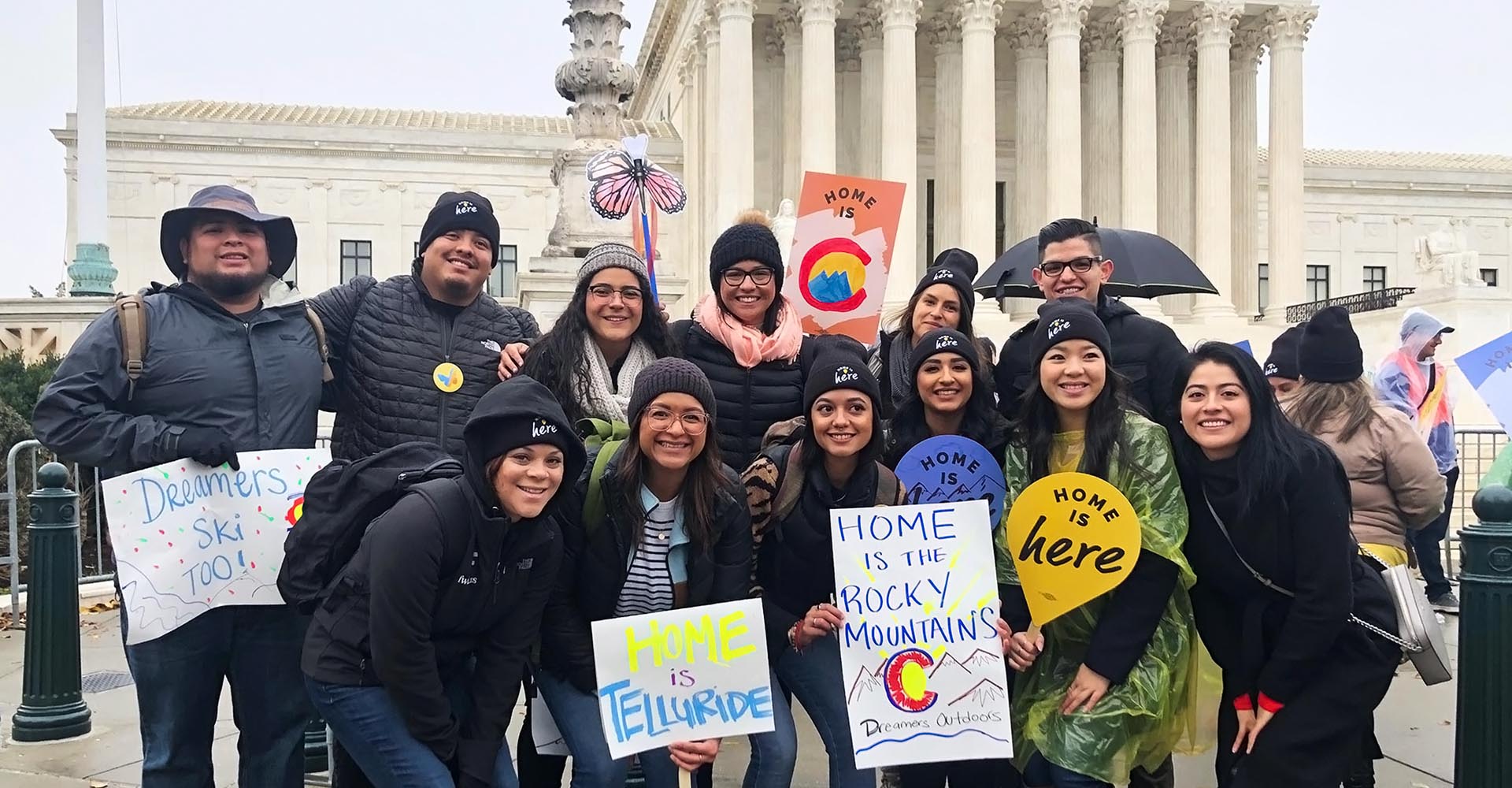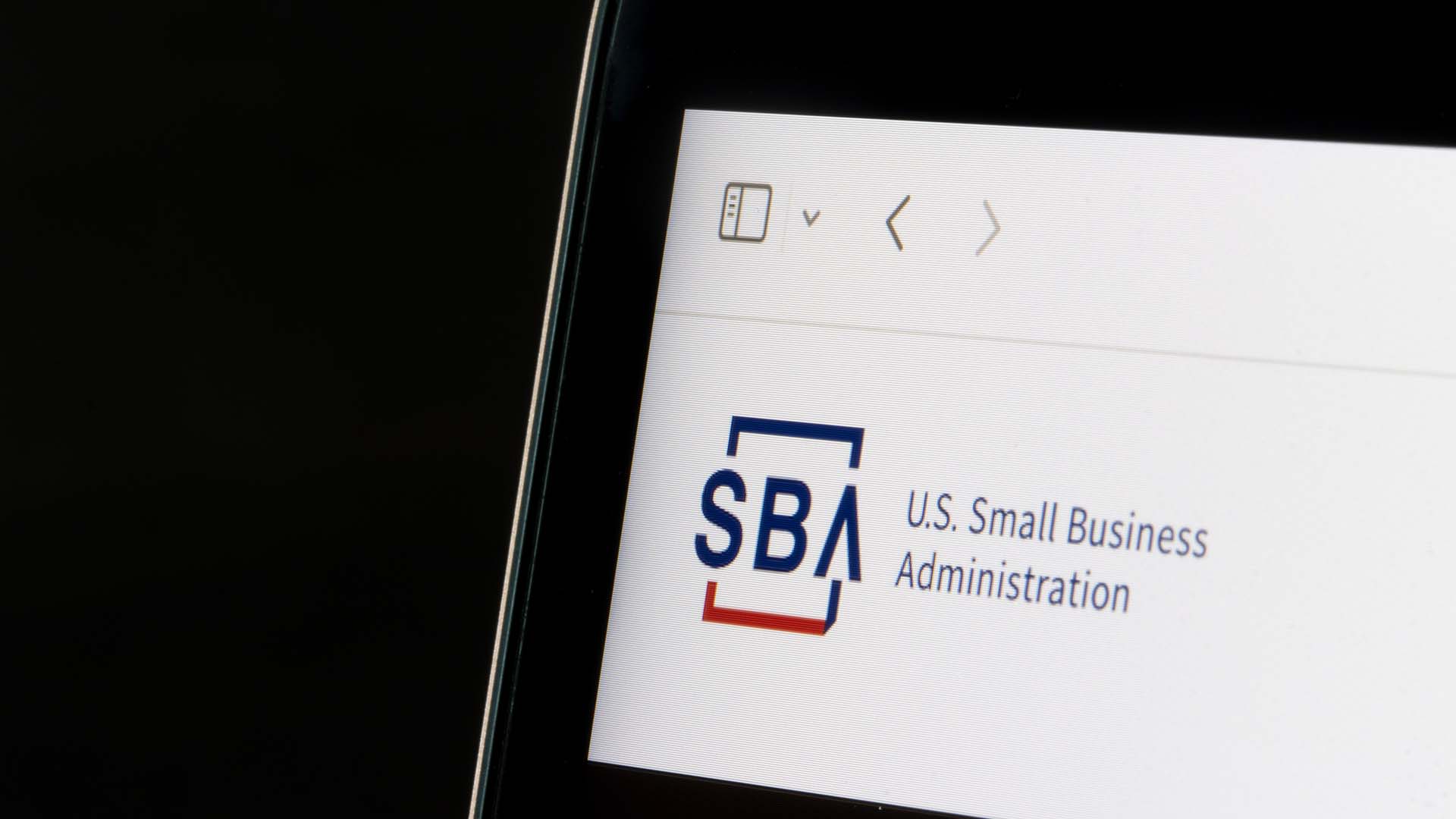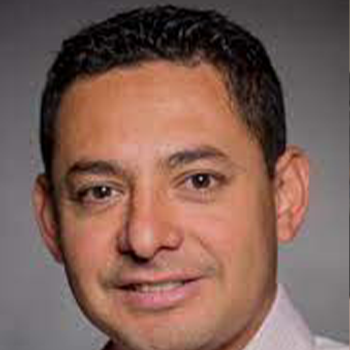Standing strong for DACA students
As the Supreme Court readies its ruling on DACA, Colorado college students continue to find support in the community they call home.

Stephanie Sianez balances study at Metropolitan State University of Denver’s School of Hospitality, full-time work at a bank and an events internship with Entercom Communications. And like thousands of Colorado college students, she is also balancing the economic and emotional chaos wrought by the COVID-19 pandemic.
But Sianez, who is one of more than 700,000 Dreamers, or undocumented immigrants who arrived in the U.S. as children, has an additional variable hanging over her: a forthcoming U.S. Supreme Court ruling on the fate of the Deferred Action for Childhood Arrivals program, which was created in 2012 by then-President Barack Obama to provide protection from deportation.
“The thought of (ending DACA) is always there in the back of your head,” Sianez said. “It does scare me, but I try to stay positive.”
The label “Dreamers” refers to the stalled DREAM Act legislation, which would establish a process for granting residency status to qualifying immigrants who entered the country as minors. Dreamers’ fate has been up in the air since September 2017, when President Donald Trump ordered his administration to stop renewing temporary work permits for DACA. The order was blocked by federal courts, but three cases have risen to the Supreme Court. At issue is whether it was legal for Obama to create DACA in 2012 without congressional approval. The high court heard oral arguments in November, and a ruling is expected this spring.
As they prepare to graduate in May in the midst of a global pandemic, Sianez and other MSU Denver student-recipients of DACA are continuing to find support in their University community.
President Janine Davidson, Ph.D., has long been an outspoken advocate for DACA students and their families. She recently spearheaded the effort to produce a letter from state higher education leaders to Colorado’s U.S. Senators and Representatives, urging them to “enact permanent legislative protection for Dreamers and to ensure that the administration does not arrest, detain or deport these individuals following an adverse Supreme Court decision.”
The letter is the latest example of MSU Denver’s longstanding leadership in advocacy for DACA students. In 2012, the University garnered national recognition when its Board of Trustees created a special tuition rate for undocumented students, providing them with easier access to higher education. That bold move is widely recognized as heralding the passage of Colorado’s Advancing Student for a Stronger Economy Tomorrow (ASSET) bill.
That support won’t wane, said Marissa Molina, state director for bipartisan immigration reform organization FWD.us and MSU Denver Trustee (pictured above in the pink scarf on the steps of the Supreme Court supporting Colorado DACA students). There are 385 undocumented students attending MSU Denver under the state’s ASSET bill, more than any other college or university in Colorado, according to University data.
“(MSU Denver) is committed to helping students stay connected to the University and keep them on track for their educational goals,” Molina said. “I’m incredibly proud to be part of this community that’s leading the way in response for support to some of our most marginalized populations.”

Established support system
Sianez is slated to earn her diploma in May, but success in higher education was no guarantee. After graduating in the top 5% of her 2012 high school class, she was admitted into a prestigious liberal-arts institution, she said. However, because she was undocumented, the school considered her an international student.
“That meant paying out-of-pocket and just wasn’t something my family and I could afford,” she said. “I thought college maybe wasn’t for me.”
Then Sianez learned about MSU Denver’s work to establish in-state tuition for DACA recipients (later extended to include financial aid). She enrolled, starting with two classes before ramping up to the hectic schedule she successfully navigates today.
And while the Supreme Court’s decision is pending, Sianez remains upbeat, focusing on family, work and school.
“If you let fear get in the way, that doesn’t get you anywhere,” she said. “Plus, I know I’ve got a support system in place to help me regardless.”
Part of that support system is the University’s Immigrant Services Program, which Sianez credited for helping her find her footing during other uncertain times.
ISP will continue to support students through the COVID-19 crisis and the Supreme Court’s rulling on DACA, said Gregor Mieder, ISP director.
Though the situation is fluid, the University and ISP has plans in place to support students regardless of the timing and outcome of the Supreme Court’s ruling, said Mieder. These include a same-day town hall with leadership, community and legal experts should the program be terminated; review and development of policies to continue to provide access to professional and legal resources for DACA and undocumented students in either decision; expansion of access to legal services throughout the typically scaled-back summer term; and development of entrepreneurship and resource opportunities for students without work authorization.
Other current ISP efforts include remote screening of applicants for institutional renewal grants and developing resources to pursue work without employment authorization, including information on how to work as an independent contractor, forming an LLC or using an individual taxpayer identification number.
DACA in the balance
Even as Colorado deals with COVID-19 fears, DACA recipients have to face the added stress of a Supreme Court ruling that could further upend their lives.
“Deportation right now is a real and credible threat; we know that cases are being reopened,” Molina said. “And all this at a time when we rely on (employed DACA recipients) to provide health care, deliver groceries and teach remotely.”
In addition to upending families, the impact of ending DACA for its 700,000 recipients has seismic ramifications for the economy and health care in Colorado. Ending DACA could cost the state up to 13,000 jobs, according to an analysis by FWD.us. Nationally, the impact of removing 27,000 front-line health workers could be “catastrophic,” said the New York Times.
“It doesn’t make sense to have these qualified people who can contribute in their communities and say, ‘no, thanks’ during this time where we can’t afford to turn anyone away,” Molina said.
Likewise, many DACA recipients worked in the service industries hardest hit by the current pandemic. For many, it was a stretch to afford their DACA renewal fee even before the pandemic hit.
“Many of our DACA and undocumented students have already lost their jobs,” Molina said. “They’re now having to choose between having $500 for their renewal or helping their family pay rent.”
Those seeking assistance on DACA renewal processes should connect with an immigration attorney and review options on InformedImmigrant.com, Molina said. Additional local information is available via ISP’s website for help with food, housing, legal services and more.
For students such as Sianez, MSU Denver’s efforts have been critical to her academic and professional success. She credits the work of ISP’s Mieder and specialist Ariadna Ochoa for being a central node to help her in all aspects of enrollment; faculty members also regularly check in with her to make sure she’s balancing everything successfully, a continuation of the support she felt pre-pandemic.
And in true Roadrunner fashion, Sianez now returns that calling of service: She’s helped connect one of her friends who recently enrolled at the University to the same critical resources.
It’s a small part of giving back to the community she and so many others call home.
“I was thinking, ‘I love school, and I love learning,’” she said. “Thanks to getting to study (at MSU Denver), I finally found what I like and how to do it as a career.
“Why stop here?”







